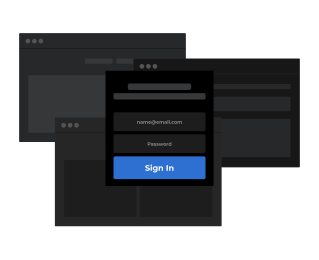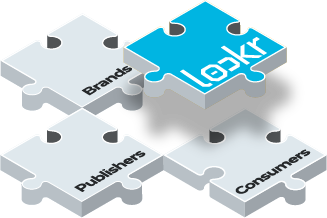

Thank you!
Just one more thing before you go...

Why lockr?
After a decade of building companies on the backbone of consumer behavioral data, I have decided to build a suite of products that empowers consumers to control and benefit from their own data.
The majority of people want more transparency around who collects information about them, according to Pew Research Center, and 74% of internet users say it’s very important to them to be in control of who can access that information. The public is not outraged by the privacy implications of data collection, but instead frustrated with companies that utilize their personal information to create value solely for themselves.
Recent legislation has transferred data ownership from the enterprise that collects the interaction to the consumer that initiated it. A data point could be a “Like” on Facebook, content watched on Netflix, a search query on Amazon, a movement recorded by a fitness tracker, or any other event logged by a company on a server.
Rather than giving consumers agency over their own data, businesses and entrepreneurs are instead exploiting loopholes in the new legislation to maintain the status quo.
Legislators create laws, but they are unable to develop the tools needed to take advantage of them. lockr fills that void, giving people the power to access information, to opt in/out of data collection practices, and to be forgotten. Instead of fighting to maintain the status quo, we should embrace transparency and create a new relationship with consumers.
lockr will be the first of a new wave of such companies embracing a Direct From Consumer (DFC) model.
Instead of opting out of any service which relies on tracking, users will instead leverage their own data in this next generation of commerce. Businesses that rely on and collect data are not inherently bad or in opposition of lockr’s business model; they’re potential partners that can collaborate and construct a better and more even value exchange between consumers and trusted services.

Machine-Generated Email Cost Calculator
Unlock additional revenue by integrating with Identity lockr.
Select your industry vertical.
How many registered users or newsletter subscribers do you have?
Average monthly emails sent to each subscriber per month?
What is your average email open rate?Optional
What is your average email click rate?Optional
Has lockr previously analyzed the machine-generated emails in your first-party data?
What was the percentage?
Enter your RPM (page revenue per 1,000 sessions).
What is your average monthly subscriber growth rate?
What is your anonymous web visitors monthly pageview traffic?
What is your authenticated monthly pageview traffic?
Projected Incremental Revenue
Projected Annual MGE Overhead
| MGE Fees | $0 |
| MGE Lost Email Revenue | $0 |
| MGE Advertising Leakage | $0 |
| One month of Email Jail | $0 |
| Incremental Revenue | $0.0M |
Enter your email to receive the full report.
Are you sure you want to leave?
Changes you made will not be saved.







